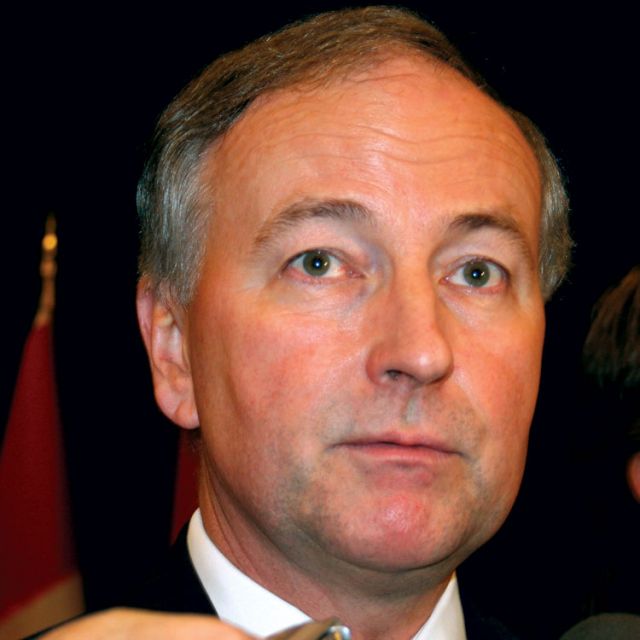Quebec's Bill 52, tabled June 12, would make it legal for doctors to end the life of patients who ask to be killed. It would also require every accredited health agency in the province, including Catholic hospitals and palliative care centres, to either provide euthanasia services or refer patients to health facilities that do.
Euthanasia and assisted suicide are offences under Canada's Criminal Code. The Quebec government argues, however, that end-of-life issues are health-care matters that fall under provincial jurisdiction. The government has also indicated it could simply instruct provincial prosecutors to not prosecute these cases.
In a statement, Justice Minister Rob Nicholson promised the federal government would “review the implications of Quebec’s proposed legislation on physician-assisted suicide and euthanasia.”
“The laws that prohibit euthanasia and assisted suicide exist to protect all Canadians, including those who are potentially the most vulnerable, such as people who are sick or elderly, and people with disabilities,” the justice minister said.
He noted the Supreme Court of Canada 1993 Rodriguez decision that upheld the Criminal Code provisions against assisted-suicide. Nicholson also cited the 2010 vote by a “large majority” of Parliamentarians to reject allowing euthanasia or assisted suicide to be made legal.
“Obviously, the federal government should be challenging this,” said Euthanasia Prevention Coalition (EPC) executive director Alex Schadenberg. “It’s not the jurisdiction of the Quebec government to legalize a form of homicide. This is about doctors lethally injecting patients,” he said.
Schadenberg noted the Bill redefines palliative care to include “terminal medical sedation” and “medical aid in dying,” a euphemism for euthanasia.
Bill 52 was introduced to an ovation from Quebec's National Assembly when it was introduced by Social Services Minister Véronique Hivon's. She said the Bill would allow people to die with autonomy and dignity. The Bill is expected to go to a vote in the fall.
To be eligible for euthanasia, a patient must be 18 or over, afflicted with an incurable disease and showing irreversible decline in health, as well as demonstrating constant and unbearable physical or psychological pain. A patient (or guardian) will be required to put the request for euthanasia in writing, which then must be approved by two doctors. The patient would then receive an injection to cause death.
The Catholic Organization for Life and Family (COLF) issued a statement saying it “radically opposes” the Quebec government’s bill which it described as “an unjust bill that will bring about dramatic consequences for all Quebeckers.”
“There is nothing humane or compassionate in killing another person,” said COLF.
COLF also criticized Bill 52’s “right to end-of-life care” as a “right to euthanasia.”
The Bill lists several requirements a patient must meet to be eligible for euthanasia, but COLF points out a patient is not obligated to seek other treatment options before requesting euthanasia. “It will be sufficient for the patient to experience ‘constant and unbearable physical or psychological pain which cannot be relieved in a manner the person deems tolerable," COLF notes.
The Physicians Alliance for Total Refusal of Euthanasia and Living with Dignity, a grassroots network opposing euthanasia, issued a joint-statement strongly condemning the bill, saying “the government is pushing Quebeckers onto a dangerous path by creating a so-called ‘right-to-die.’
“[The Bill] is dangerous, discriminatory and opposed to social justice,” said Dr. Marc Beauchamp of the Physicians’ Alliance. “At a time when Quebeckers are rightly concerned about the scourge of elder abuse, it would be very naïve to think that euthanasia, the ultimate abuse, will not become a growing threat to the most vulnerable.”
“Quebeckers already have the right to refuse or discontinue treatment,” said Living with Dignity spokesman Michel Racicot. “They already have the right to say ‘no’ to over-treatment and to receive effective painkillers, and, if necessary, sedation to reduce their pain. These actions have nothing to do with euthanasia.”
"We're trying to legalize euthanasia by confusing people," Racicot said in an interview.
Opponents vowed to continue fighting to protect the security of all patients admitted to hospitals and “vigorously” challenge the Bill that would make it “possible to kill citizens weakened by illness within the public health system of Quebec.”
They criticized the process leading to the Bill as neither just nor credible.
“There is no doubt that this government Bill opens the door wide to court challenges from Quebec groups and from the federal government,” the groups’ joint statement said.
"What's the urgency to legalize euthanasia?" Racicot asked. "It's been forbidden for more than 20 centuries."
Instead Quebec should focus on providing good palliative care, which is now only available to about 20 per cent of the population. Palliative care can alleviate suffering, but "it needs adequate budgets," he said.
"The people who have the right to palliative care will not have the right to exercise it in most cases," Racicot said. If no palliative care is available, the patient will be offered euthanasia. "Is this the kind of society we want to have?"
In Belgium, where euthanasia is legal, the number of cases of euthanasia has shown an alarming rate of increase, from 235 in 2003 to 1,133 in 2011, according to a 2012 study by the European Institute of Bioethics. COLF says the study concludes that euthanasia is becoming a normal and commonplace act in that country.
Despite restrictions and safeguards, countries and states that have legalized euthanasia and assisted suicide experience “increased depreciation for human life” and vulnerable people “have been encouraged to ask for euthanasia” in the name of “budgetary efficiency," COLF said.
“This danger is real and is likely to increase with the aging of our population, the rise in demand for health services and the related costs,” COLF warned. “We must not give anyone — especially not our doctors — the power to kill.
“We must keep our hospitals safe and protect the weakest and the most vulnerable among us,” COLF said. “It is a matter of public safety, of dignity, of true compassion and solidarity.”

